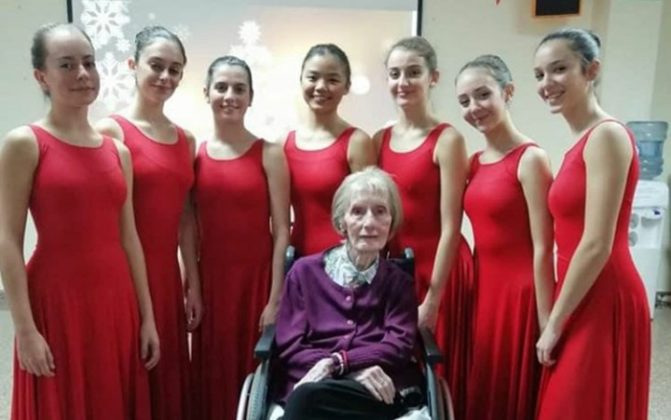

Being able to listen to this immense work of art with a person who danced it and was a fundamental part of its history. (translated) One of the most impressive moments we have experienced since Música para Despertar. As soon the music hit Saldaña’s ears, she began moving her arms to the music as if she were dancing upon the stage once again. Saldaña was being treated for Alzheimer’s at a clinic in Valencia, Spain when her movement therapist from Asociación Música para Despertar gave her headphones that were playing the soundtrack. González Saldaña remarkably remembered a ballet routine she played over 60 years ago as soon as she heard the music from “Swan Lake”. Meanwhile a US study found that seniors with Alzheimer's disease and related dementias could benefit from listening to personalised music playlists to help them cope with the anxiety of living with their condition.Īnyone with concerns about dementia can visit Alzheimer’s Research UK or call the helpline on 03.Īlternatively you can visit Alzheimer’s Society or contact the dementia connect support line on 03.Īdditional reporting PA Real Life.Former prima ballerina Marta C. The call came after a previous study found that giving patients personal music playlists resulted in a 60% reduction in the need for medication. This is the kind of personalised care that I fully endorse as a key part of our NHS long term plan.”

“There is increasing evidence suggesting music can bring calm to people with dementia by reducing agitation and supporting those affected to cope better with symptoms. Read more: Couple gets married for second time after husband's dementia caused him to forget their first wedding “In particular, I want to combat over-medicalisation and dishing out pills when it's not in the best interests of the patient,” Matt Hancock said. Last year, the UK’s health secretary said dance sessions should be prescribed to more dementia patients, to prevent “over-medicalised” treatment. Read more: What are the risk factors for dementia?Ī number of other studies have shown how music can benefit those suffering from not only memory loss syndrome, but other physical conditions too. Last year, the International Longevity Centre UK (ILC) and the Utley Foundation found that music therapy can help improve a person’s physical health and mental wellbeing. There are a number of early signs of dementia to look out for, and although there is currently no cure for the condition, research suggests that music may help to alleviate symptoms for people living with dementia and make them feel happier. Read more: Grandson creates 'water sweets' to prevent dehydration after caring for grandmother with dementiaĭementia is a persistent neurocognitive disorder that impacts a person’s mood and memory.Īccording to the NHS, dementia is not a single illness, but a group of symptoms caused by damage to the brain.ĭementia is most commonly caused by Alzheimer’s disease and is often seen in those aged over 65.Īlzheimer’s Society research reveals that the condition affects more than 850,000 people in the UK each year and this figure looks set to increase to over one million by 2025. “May she rest in peace.”Īctor Antonio Banderas shared the clip on Facebook, writing that he hoped the video would serve as “a well-deserved recognition of her art and her passion”. “The power of music is immeasurable,” the charity said. She is then comforted as she tells a care worker she is “emotional”. In the video, Gonzalez listens to the music through a pair of headphones and before long she begins to replicate the choreography she danced to decades ago.Īfter finishing her performance, she is met with applause by those present at the care home in Valencia.

A video of a former ballerina with dementia remembering her dance moves is going viral.


 0 kommentar(er)
0 kommentar(er)
